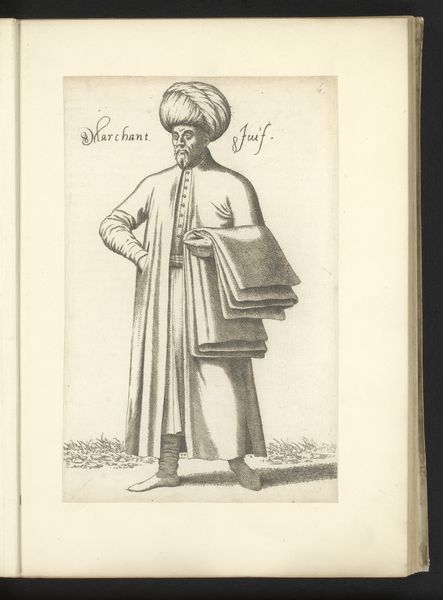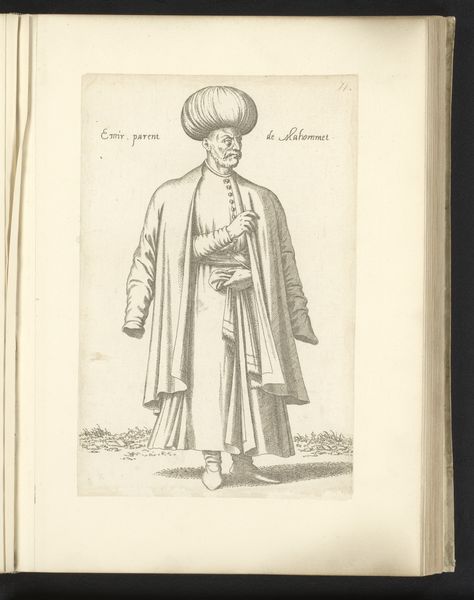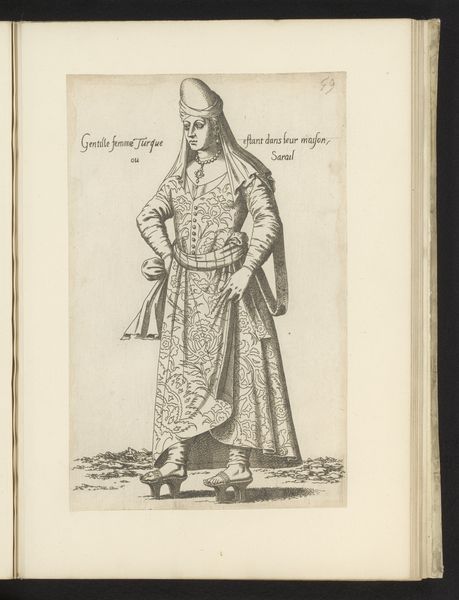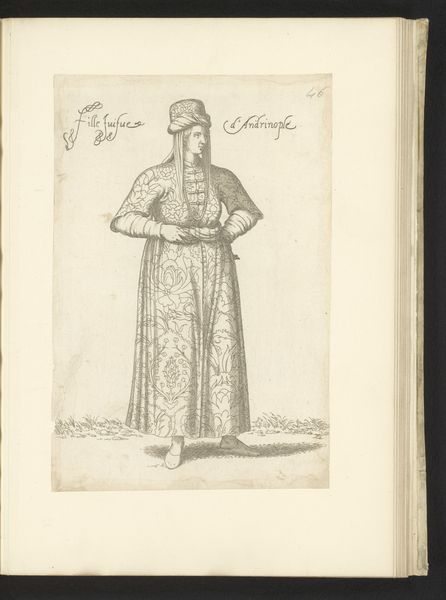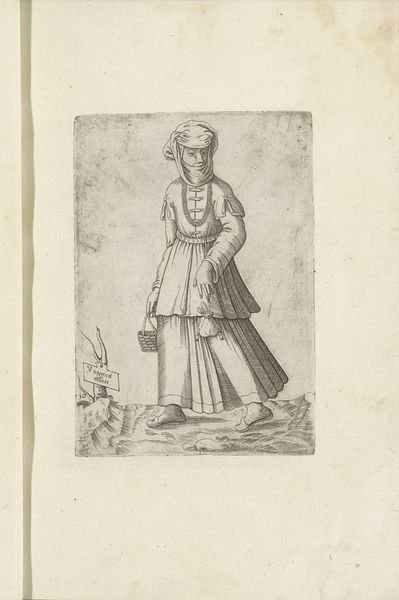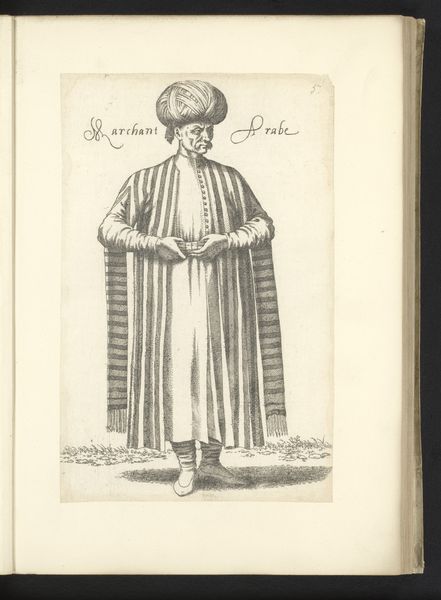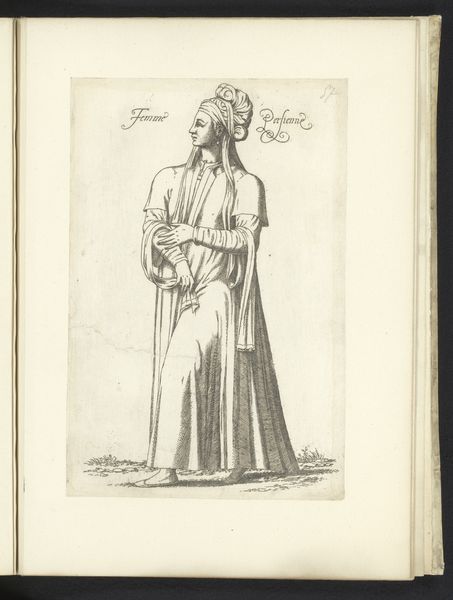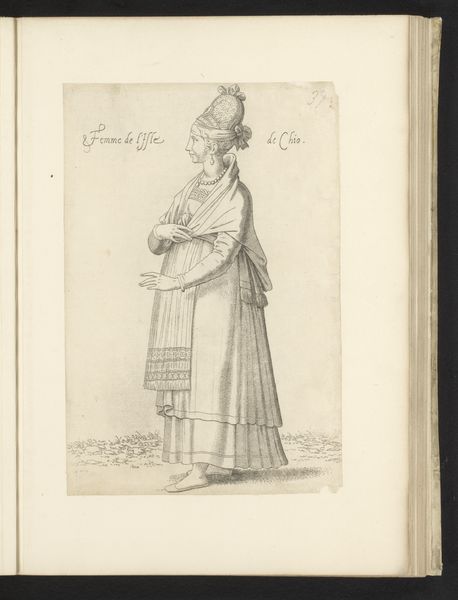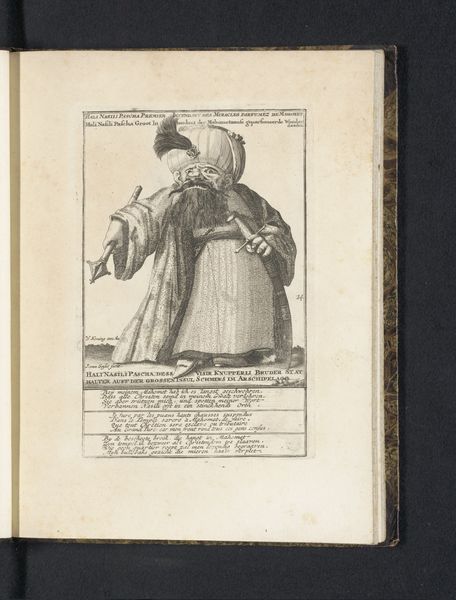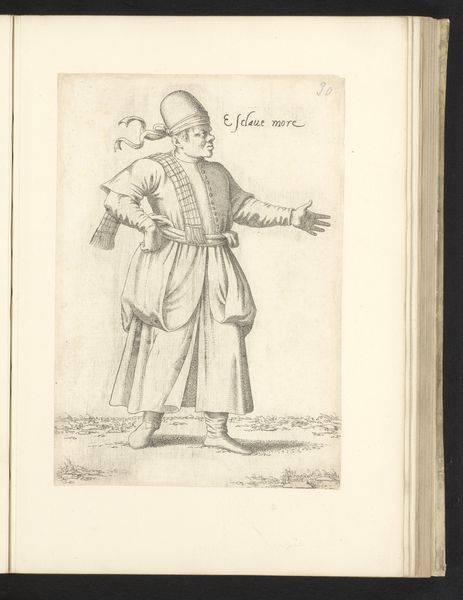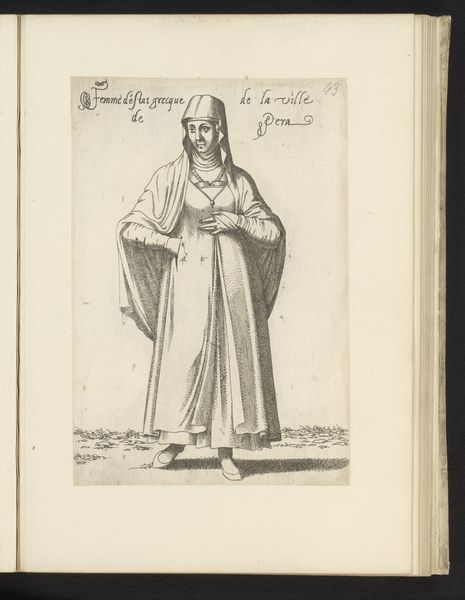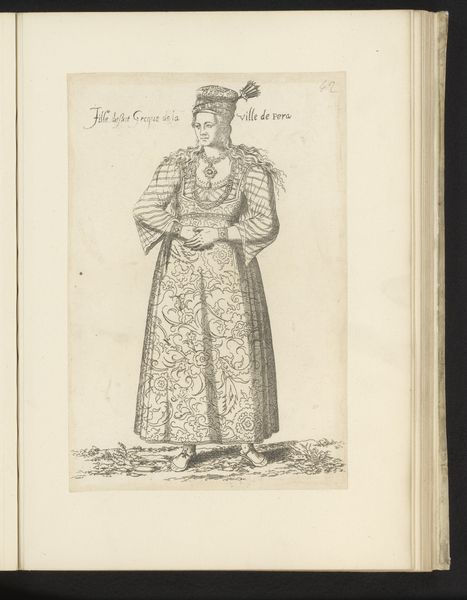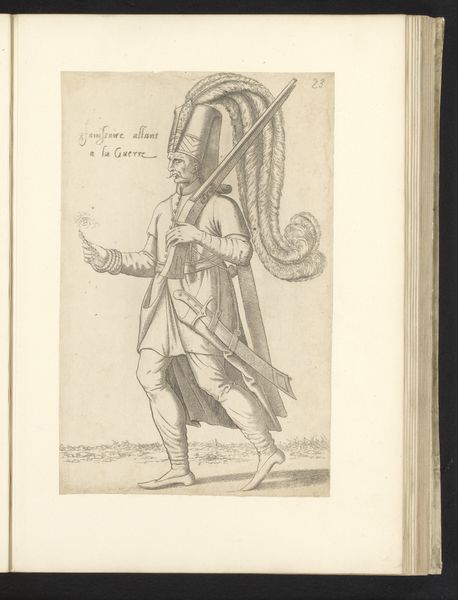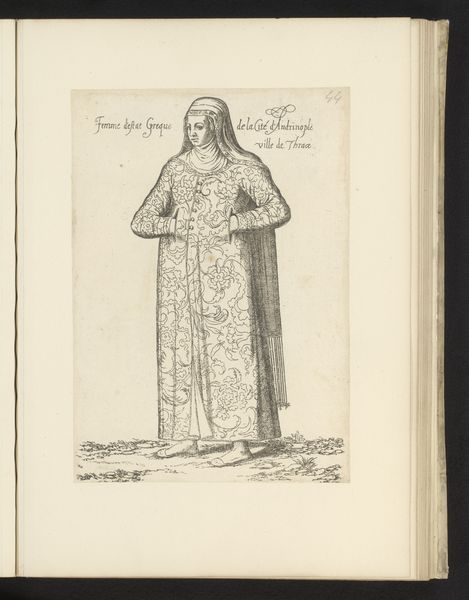
drawing, ink, pen
#
portrait
#
drawing
#
pen drawing
#
pen illustration
#
mannerism
#
ink
#
pen
#
genre-painting
Dimensions: height 264 mm, width 173 mm
Copyright: Rijks Museum: Open Domain
Léon Davent’s “Griekse handelaar” or “Greek merchant,” was created around the mid-16th century using engraving, a printmaking process. The magic of engraving lies in the precise manipulation of the burin, a tool used to carve lines directly into a metal plate, usually copper. The depth and spacing of these lines determine the amount of ink held, and therefore the darkness of the printed line. Look closely, and you’ll see how Davent varied the line work to create the textures of the figure’s robes. The engraver would have needed to be both a skilled artist and a metalworker, controlling the burin with great dexterity. The resulting print, in turn, could be widely distributed, bringing images and ideas to a broad audience. This was particularly important in the 16th century, when prints were a primary means of circulating visual information. The figure here is likely drawn from observation, as Europeans expanded their trading networks into the eastern Mediterranean. So, next time you see an engraving, remember that you're not just looking at an image, but a testament to the labor, skill, and social context that brought it into being.
Comments
No comments
Be the first to comment and join the conversation on the ultimate creative platform.
